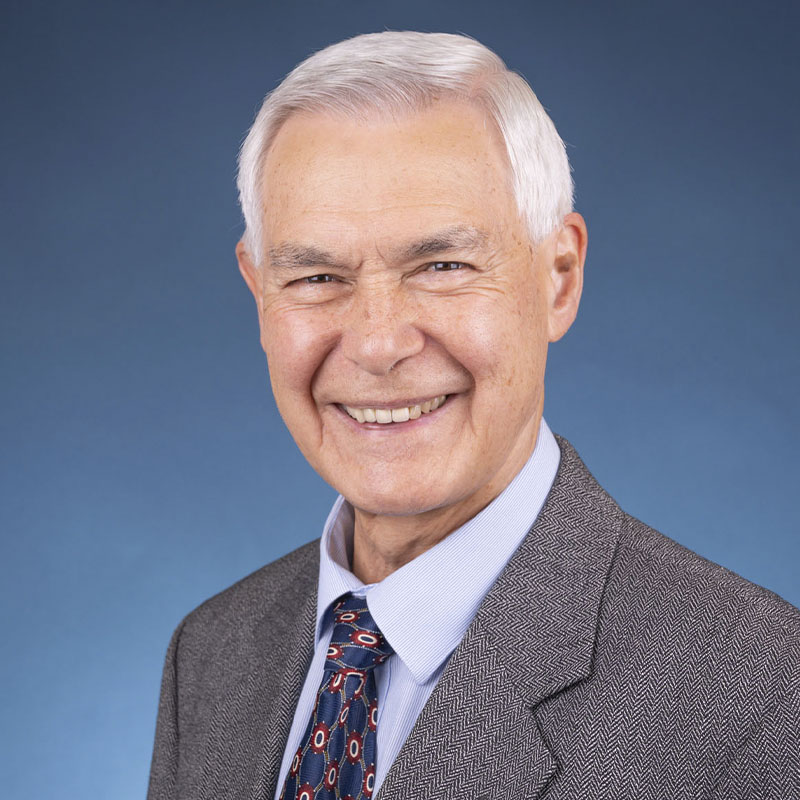Paul’s letter was intended to encourage members in Thessalonica. His heartfelt words have inspired readers through the centuries—and they can help us today.

The apostle Paul wrote letters to the congregations he established in order to strengthen them, answer questions and address the needs of the members when he could not be with them. He wrote the epistle of 1 Thessalonians soon after beginning the congregation there.
Historical background
“Thessalonica was a free city, capital of the Roman province of Macedonia (northern Greece). It was a prosperous port on the Aegean Sea. … It stood on the Egnatian Way, the land trade-route … to Byzantium (Istanbul). Thessaloniki is today a flourishing modern city, centre of government for northern Greece, and second only to Athens” (David and Pat Alexander, The Lion Handbook to the Bible, p. 614).
Paul founded the congregation in Thessalonica around A.D. 50-51 during his second journey, accompanied by Silas and Timothy (Acts 16:1-3; 17:1-15). For his own safety, Paul was sent away from Thessalonica when certain Jews stirred up trouble against him and other Church members. He went to Berea, and then continued on to Athens. Timothy joined him in Athens, but Paul sent him back to Thessalonica to gather news about the congregation there.
“Being driven away by the violence of the Jews, Paul left the newly-planted church in such difficulties as excited his anxiety respecting them, and led him to send Timothy from Athens, to encourage and comfort them under the persecutions to which they were exposed (3:1-2). Timothy re-joined the Apostle at Corinth, and brought him an account of the steadfastness of the Thessalonian Christians which filled him with joy and gratitude (3:6-9), and reawakened his desire to visit them. But, having been repeatedly disappointed in his plans for that purpose (2:17-18), he wrote this letter from Corinth, A.D. 52.
“This, being perhaps the earliest of Paul’s epistles, was accompanied by a solemn charge that it should be read publicly in the church (5:27)” (Joseph Angus, The Bible Handbook, 1959, p. 687).
Purpose of the epistle
One of the main reasons Paul wrote the letter was to encourage and establish the newly formed congregation in the basic truths of God’s way of life. This encouragement to remain steadfast was necessary as opposition continued after Paul and his party left (1 Thessalonians 3:6-10).
The letter also helped:
- To counteract efforts on the part of some to undermine Paul’s authority and reputation (2:1-10, 17-20).
- To clarify the connection between the return of Christ and the resurrection of the saints (4:13-18; 5:9-10).
- To offer instruction on specific points regarding their behavior as members of the Church. This included moral and sexual purity (4:3-8); brotherly love and personal discipline (4:9-12); esteeming highly those who “labor among you” (5:12-13); demonstrating godly Christian conduct (5:14-24); and remembering to “pray for us” (5:25).
Paul admonished them to “test all things; hold fast what is good” (5:21).
Outline of 1 Thessalonians
Below is an outline of the epistle.
Chapter 1
Paul commended the members for their steadfastness and faithfulness despite suffering severe persecution and opposition. They “became followers of us and of the Lord, having received the word in much affliction, with joy of the Holy Spirit” (1:6).
Chapter 2
Because of a campaign by some in Thessalonica to destroy Paul’s reputation, he testified that his conduct among them had been in every way an example of unselfish and brotherly devotion to them (2:1-12).
His desire was to please God (verse 4) and not to seek the praise of men (verse 6). He refused financial support from the members (verse 9). Paul reminded them that they were witnesses of “how devoutly and justly and blamelessly we behaved ourselves among you who believe” (verse 10).
Paul commended them for receiving the Word of God “not as the word of men, but as it is in truth, the word of God, which also effectively works in you who believe” (verse 13). He longed to see them again despite the failures of previous attempts: “Therefore we wanted to come to you—even I, Paul, time and again—but Satan hindered us” (verse 18).
Chapter 3
Paul expressed his deep-seated concern for their spiritual welfare as he was unsure how they would stand up to bitter and sustained persecution. However, he was greatly encouraged and filled with joy when Timothy returned with the news of their steadfastness and devotion to God and His Word (3:1-10). His earnest prayer for the Thessalonian church is recorded in verses 11-13.
Chapter 4
Paul emphasized godly conduct, including a warning against sexual immorality (4:1-8) and encouragement to develop a righteous attitude toward fellow brethren and outsiders (verses 9-12).
These instructions were a prelude to a great future event—the second coming of Christ. Paul told them that after Christ’s return they would always be with Him (verses 13-18).
Chapter 5
Paul continued with the subject of the second coming of Christ. His return to the earth is a certain and undeniable event. This is a theme that is frequently mentioned throughout the Bible. Paul warned the members to be spiritually alert and vigilant so that they would not be caught off guard by the appearing of Christ. He will come suddenly, unexpectedly—“as a thief in the night”—and we need to be ready (5:1-11).
Paul concluded every chapter with a reference to the second coming of Jesus Christ, the time when the saints will be changed from mortal to immortal spirit beings.
In verses 12-25 Paul gave numerous exhortations regarding practical Christian conduct and spiritual growth. Understanding human weaknesses, Paul placed his trust in God to help the believers in their endeavors to live a life that is pleasing to Him. His desire was for God to preserve them “blameless at the coming of our Lord Jesus Christ” (verse 23).
The resurrection: hope for mankind
Paul concluded every chapter with a reference to the second coming of Jesus Christ, the time when the saints will be changed from mortal to immortal spirit beings (1:10; 2:19; 3:13; 4:16-18; 5:23).
He recorded these comforting words: “For the Lord Himself will descend from heaven with a shout, with the voice of an archangel, and with the trumpet of God. And the dead in Christ will rise first. Then we who are alive and remain shall be caught up together with them in the clouds to meet the Lord in the air. And thus we shall always be with the Lord” (4:16-17).
Christ’s second coming
Jesus Christ promised that He would return to the earth: “And if I go [to heaven] and prepare a place for you, I will come again [to earth] and receive you to Myself; that where I am, there you may be also” (John 14:3, emphasis added throughout).
After explaining that “all the tribes of the earth” would “see the Son of Man coming on the clouds of heaven with power and great glory,” Christ stated that He “will send His angels with a great sound of a trumpet, and they will gather together His elect [marginal note, “chosen ones”] from the four winds, from one end of heaven to the other” (Matthew 24:30-31). (For a deeper look at the biblical teaching that Christ will visibly return to the earth rather than secretly rapture people away, see the article “Rapture: Will There Be a Secret Rapture?”)
This transformation has to occur since “flesh and blood [what we are now] cannot inherit the kingdom of God” (1 Corinthians 15:50-55). Clearly, our change from mortal to immortal must take place before we can enter the Kingdom of God.
The dead are raised
This good news about the resurrection is the ultimate hope for each of us and for all of humanity.
We should not be shocked or surprised by what the Bible says about our ultimate destiny: “Most assuredly, I say to you, the hour is coming, and now is, when the dead will hear the voice of the Son of God; and those who hear will live. … Do not marvel [be surprised, astonished] at this; for the hour is coming in which all who are in the graves will hear His voice and come forth” (John 5:25, 28-29).
This is clearly a description of how the dead will be brought back to life again.
The promised inheritance
The apostle Peter also provides a wonderful description of the inheritance that Christ will bring at His return.
“Blessed [praised, honored] be the God and Father of our Lord Jesus Christ, who according to His abundant mercy has begotten us again to a living hope through the resurrection of Jesus Christ from the dead, to an inheritance incorruptible and undefiled and that does not fade away, reserved in heaven for you, who are kept by the power of God through faith for salvation ready to be revealed in the last time” (1 Peter 1:3-5).
Peter describes our inheritance as:
- “Incorruptible”: that which cannot be destroyed; this description is used of the resurrected body (see 1 Corinthians 15:42, 50, 53-54).
- “Undefiled”: free from any contamination; “unsoiled; free from that by which the nature of a thing is deformed and debased, or its force and vigor impaired; … pure from sin” (Thayer’s Greek-English Lexicon of the New Testament).
- “Does not fade away”: “The Christian is lifted into a world where there is no change and decay and where his peace and joy are untouched by the chances and changes of life” (William Barclay, The Daily Study Bible).
Our inheritance is incapable of decay or being corrupted. It is totally pure and will never lose its luster. “To us inheritance tends to mean something which in the future we shall possess; as the Bible uses the word, it rather means a secure possession” (Barclay).
Is there anything else in this world you may come to possess that is endowed with the same tremendous value?
Nothing is more exciting and inspiring than the inheritance God has for the faithful!
Now is the time for action
God has an awesome purpose for your life—your ultimate destiny. The apostle John also described it: “Beloved, now we are children of God; and it has not yet been revealed what we shall be, but we know that when He is revealed, we shall be like Him, for we shall see Him as He is” (1 John 3:2). Our Creator is in the process of “bringing many sons to glory” (Hebrews 2:10).
We are invited to participate in God’s master plan for all of mankind.
It is up to each of us to accept God’s offer to become a part of His Kingdom that will ultimately rule the entire universe (Daniel 12:3; Hebrews 2:8). Do not allow anything to come between you and God’s wonderful purpose for your life.
Respond to God’s calling by studying and applying the process of conversion He has laid out in the Bible. This process is summarized in our helpful free booklet Change Your Life! Download it now and discover the next step God wants you to take.
For a quick link to all the other books of the Bible, see “Books of the Bible” on the Learning Center.





